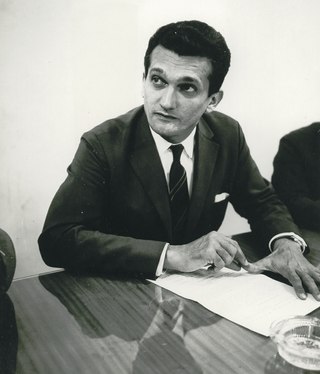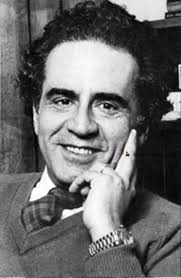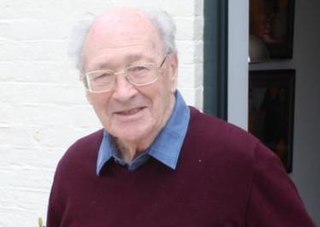Related Research Articles

Macroeconomics is a branch of economics that deals with the performance, structure, behavior, and decision-making of an economy as a whole. This includes regional, national, and global economies. Macroeconomists study topics such as output/GDP and national income, unemployment, price indices and inflation, consumption, saving, investment, energy, international trade, and international finance.
The Washington Consensus is a set of ten economic policy prescriptions considered to constitute the "standard" reform package promoted for crisis-wracked developing countries by Washington, D.C.-based institutions such as the International Monetary Fund (IMF), World Bank and United States Department of the Treasury. The term was first used in 1989 by English economist John Williamson. The prescriptions encompassed free-market promoting policies such as trade liberalization, privatization and finance liberalization. They also entailed fiscal and monetary policies intended to minimize fiscal deficits and minimize inflation.
The Lucas critique argues that it is naive to try to predict the effects of a change in economic policy entirely on the basis of relationships observed in historical data, especially highly aggregated historical data. More formally, it states that the decision rules of Keynesian models—such as the consumption function—cannot be considered as structural in the sense of being invariant with respect to changes in government policy variables. It was named after American economist Robert Lucas's work on macroeconomic policymaking.

Celso Monteiro Furtado was a Brazilian economist and one of the most distinguished intellectuals of the 20th century. His work focuses on development and underdevelopment and on the persistence of poverty in peripheral countries throughout the world. He is viewed, along with Raúl Prebisch, as one of the main formulators of economic structuralism, an economics school that is largely identified with CEPAL, which achieved prominence in Latin America and other developing regions during the 1960s and 1970s and sought to stimulate economic development through governmental intervention, largely inspired on the views of John Maynard Keynes. As a politician, Furtado was appointed Minister of Planning and Minister of Culture.

John Brian Taylor is the Mary and Robert Raymond Professor of Economics at Stanford University, and the George P. Shultz Senior Fellow in Economics at Stanford University's Hoover Institution.
Articles in economics journals are usually classified according to JEL classification codes, which derive from the Journal of Economic Literature. The JEL is published quarterly by the American Economic Association (AEA) and contains survey articles and information on recently published books and dissertations. The AEA maintains EconLit, a searchable data base of citations for articles, books, reviews, dissertations, and working papers classified by JEL codes for the years from 1969. A recent addition to EconLit is indexing of economics journal articles from 1886 to 1968 parallel to the print series Index of Economic Articles.

The economic history of Brazil covers various economic events and traces the changes in the Brazilian economy over the course of the history of Brazil. Portugal, which first colonized the area in the 16th century, enforced a colonial pact with Brazil, an imperial mercantile policy, which drove development for the subsequent three centuries. Independence was achieved in 1822. Slavery was fully abolished in 1888. Important structural transformations began in the 1930s, when important steps were taken to change Brazil into a modern, industrialized economy.

Guillermo Alberto O'Donnell Ure was a prominent Argentine political scientist who specialized in comparative politics and Latin American politics. He spent most of his career working in Argentina and the United States, and who made lasting contributions to theorizing on authoritarianism and democratization, democracy and the state, and the politics of Latin America. His brother is Pacho O'Donnell.
Dynamic stochastic general equilibrium modeling is a macroeconomic method which is often employed by monetary and fiscal authorities for policy analysis, explaining historical time-series data, as well as future forecasting purposes. DSGE econometric modelling applies general equilibrium theory and microeconomic principles in a tractable manner to postulate economic phenomena, such as economic growth and business cycles, as well as policy effects and market shocks.

Guillermo Antonio Calvo is an Argentine-American economist who is director of Columbia University's mid-career Program in Economic Policy Management in their School of International and Public Affairs (SIPA).
John Henry Coatsworth is an American historian of Latin America and the former provost of Columbia University. From 2012 until June 30, 2019, Coatsworth served as Columbia provost. From 2007 until February 2012 Coatsworth was the dean of Columbia's School of International and Public Affairs (SIPA), and served concurrently as interim provost beginning in 2011. Coatsworth is a scholar of Latin American economic, social and international history, with an emphasis on Mexico, Central America, and the Caribbean.

The Mexican miracle is a term used to refer to the country's inward-looking development strategy that produced sustained economic growth. It is considered to be a golden age in Mexico's economy in which the Mexican economy grew 6.8% each year. It was a stabilizing economic plan which caused an average growth of 6.8% and industrial production to increase by 8% with inflation staying at only 2.5%. Beginning roughly in the 1940s, the Mexican government would begin to roll out the economic plan that they would call "the Mexican miracle," which would spark an economic boom beginning in 1954 spanning some 15 years and would last until 1970. In Mexico, the Spanish economic term used is "Desarrollo estabilizador" or "Stabilizing Development."

The following outline is provided as an overview of and topical guide to economics:

Macroeconomic theory has its origins in the study of business cycles and monetary theory. In general, early theorists believed monetary factors could not affect real factors such as real output. John Maynard Keynes attacked some of these "classical" theories and produced a general theory that described the whole economy in terms of aggregates rather than individual, microeconomic parts. Attempting to explain unemployment and recessions, he noticed the tendency for people and businesses to hoard cash and avoid investment during a recession. He argued that this invalidated the assumptions of classical economists who thought that markets always clear, leaving no surplus of goods and no willing labor left idle.

Rodrigazo is the name given to a group of economic policies announced in Argentina on June 4, 1975, and their immediate aftermath. The name is from the fact that the policies were announced and implemented by Celestino Rodrigo, the Minister of Economy of Argentina appointed by President Isabel Perón in May 1975.

Hyperinflation in Brazil occurred between the first three months of 1990. The monthly inflation rates between January and March 1990 were 71.9%, 71.7% and 81.3% respectively. As accepted by the International Monetary Fund (IMF), hyperinflation is defined as a period of time in which the average price level of goods and services rise by more than 50% a month.

Wim Driehuis is a Dutch economist, Emeritus Professor Economics and Business at the University of Amsterdam.
Macroeconomic populism is a term coined by Rudi Dornbusch and Sebastian Edwards in a 1990 paper. The term refers to the policies by many Latin American administrations by which government spending and real wages increase in a non-sustainable way leading to inflation, then stagflation and ultimately an economic collapse that drops real wages to lower than they were before the populist period began. The paper cites as examples Salvador Allende in Chile (1970–1973), and Alan García first term in Peru (1985–1990). In 1991, Dornbusch and Edwards edited a book titled The Macroeconomics of Populism in Latin America which analyzed more cases like Argentina between 1973 and 1976, Mexico between 1970 and 1982, and Brazil.

Geoffrey Walter Maynard was a British economist.
The BONEX Plan was a forced conversion of bank time deposits to Treasury bonds performed by the Argentine government in January 1990.
References
- ↑ Juan Carlos de Pablo : The Argentine Experience 1967-70, in Journal of Development Economics, Vol. 1, Issue 3, Dec. 1974